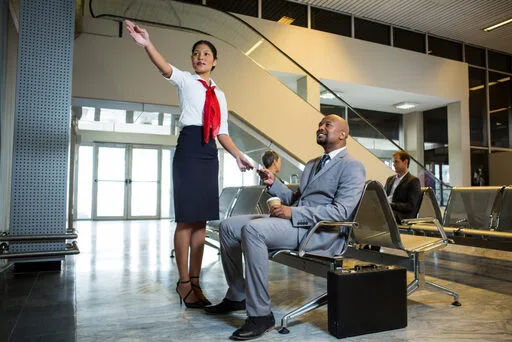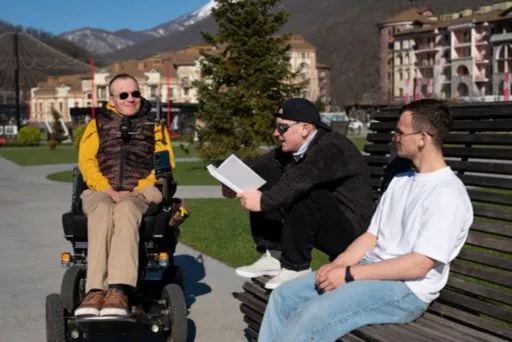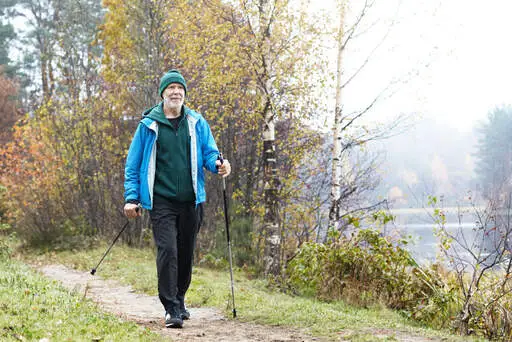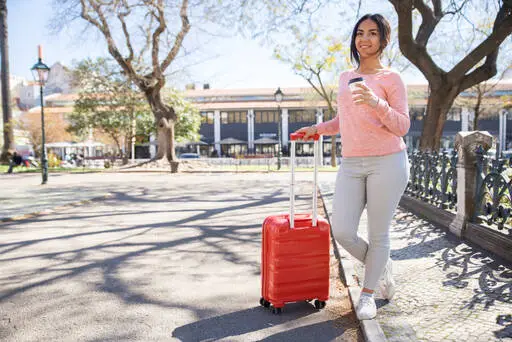At good to best, we are passionate about making travel accessible for everyone. In this blog post, we delve into Accessible Travel, highlighting inspiring destinations and practical tips for exploring the world with disabilities. Discover how to navigate your travels with ease and enjoy every adventure to the fullest.
Table of Contents
1. Introduction to Accessible Travel
Travel is a universal passion, offering opportunities to explore new cultures, cuisines, and landscapes. However, for individuals with disabilities, traditional travel plans can present significant challenges. Accessible travel seeks to eliminate these barriers, ensuring that everyone, regardless of their physical limitations, can enjoy the wonders of the world. This inclusive approach to travel emphasizes the importance of accessible infrastructure, services, and experiences.
Accessible travel encompasses a wide range of considerations, from wheelchair-friendly accommodations to sensory-friendly attractions. It is about creating an environment where travellers with disabilities can navigate with ease and confidence. This type of travel planning ensures that every detail, from transportation to accommodation and activities, is tailored to meet the needs of individuals with disabilities, providing a seamless and enjoyable experience.
The rise in awareness and demand for accessible travel has led to significant improvements in many popular destinations. Governments, tourism boards, and businesses are increasingly recognizing the need to cater to travellers with disabilities, resulting in more inclusive travel experiences. This shift not only benefits travellers with disabilities but also enriches the travel industry by fostering a more diverse and inclusive global community.
- The Importance of Accessibility in Travel
The importance of accessibility in travel cannot be overstated. For millions of people worldwide, travel is not just a leisure activity but a vital part of their lives. Ensuring that travel is accessible means that everyone, including those with disabilities, can participate fully in cultural, social, and economic activities. Accessible travel helps break down social barriers, promoting greater understanding and inclusion across different communities.
Accessibility in travel also has significant economic implications. The tourism industry thrives on diversity and inclusivity, and by making travel more accessible, destinations can attract a broader range of visitors. This inclusivity can lead to increased revenue for local businesses and stimulate economic growth in tourist destinations. Investing in accessible infrastructure and services is a win-win situation for both travellers and the travel industry.
Furthermore, accessible travel enhances the quality of life for individuals with disabilities. It allows them to experience the joy of exploration and adventure, just like anyone else. Travel can be a powerful means of empowerment, providing opportunities for personal growth, learning, and connection. By prioritizing accessibility, the travel industry can ensure that everyone has the chance to enjoy these enriching experiences.
- Benefits of Accessible Travel
Accessible travel offers numerous benefits that extend beyond just the travellers themselves. For individuals with disabilities, the primary benefit is the freedom and independence to explore the world without unnecessary obstacles. This freedom fosters a sense of autonomy and confidence, allowing travellers to fully immerse themselves in new experiences and cultures.
Another significant benefit of accessible travel is the positive impact it has on travel companions. Friends and family members travelling with individuals with disabilities often experience reduced stress and greater enjoyment when accessibility is prioritized. Knowing that facilities and services are designed to accommodate all needs allows everyone in the travel party to relax and enjoy the trip.
Moreover, accessible travel contributes to the overall improvement of travel services and infrastructure. As more destinations and companies prioritize accessibility, the travel industry evolves to become more inclusive for everyone, including those without disabilities. Features like ramps, tactile guides, and accessible public transportation benefit a wide range of people, such as elderly travellers and families with young children, creating a universally better travel experience.
2. Top Accessible Destinations
When it comes to accessible travel, certain destinations stand out for their commitment to inclusivity and ease of access. These top accessible destinations provide facilities and experiences that cater to travellers with disabilities, ensuring a comfortable and enjoyable journey. From cities with well-developed infrastructure to natural wonders with adaptive features, these destinations demonstrate that accessible travel is both possible and delightful.
Many European cities have made significant strides in becoming accessible travel hotspots. These cities often boast historical sites, museums, and public transportation systems that are fully equipped to accommodate travellers with disabilities. In North America, numerous cities and national parks offer inclusive experiences, ranging from urban adventures to breathtaking natural landscapes. Meanwhile, parts of Asia are increasingly recognizing the importance of accessibility, with several destinations making notable efforts to improve their infrastructure.
Choosing a destination that prioritizes accessibility can transform a travel experience from challenging to seamless. These top accessible destinations not only meet the practical needs of travellers with disabilities but also provide enriching cultural and recreational activities. Whether you’re looking to explore ancient ruins, enjoy a vibrant cityscape, or relax in a serene natural setting, these destinations ensure that accessible travel is within reach for everyone.
- Europe: Accessibility Highlights
Europe is renowned for its rich history, diverse cultures, and stunning architecture, making it a prime destination for accessible travel. Cities like Barcelona, with its accessible public transportation and famous attractions like Sagrada Familia and Park Güell, offer a blend of history and modern convenience. The city’s well-maintained sidewalks and ramps make it easy for travellers with disabilities to navigate and enjoy the vibrant atmosphere.
Amsterdam is another top pick for accessible travel in Europe. The city is known for its flat terrain and extensive network of accessible trams and buses. Key attractions such as the Van Gogh Museum and Anne Frank House are equipped with ramps and elevators, ensuring that everyone can appreciate their historical and cultural significance. Additionally, many of Amsterdam’s canals offer accessible boat tours, providing a unique perspective of the city’s picturesque waterways.
Vienna stands out for its commitment to making travel accessible for all. The city’s public transportation system is highly accessible, with low-floor trams and buses, as well as elevators in most subway stations. Vienna’s historic sites, including the Schönbrunn Palace and St. Stephen’s Cathedral, have been adapted to accommodate travellers with disabilities. The city’s dedication to accessibility extends to its parks and recreational areas, making it a welcoming destination for all travellers.
- North America: Inclusive Travel Spots
North America offers a wealth of inclusive travel spots that cater to the needs of travellers with disabilities. Cities like Washington, D.C., are exemplary in providing accessible travel experiences. The city’s major attractions, such as the Smithsonian museums, the National Mall, and the monuments, are designed to be wheelchair-friendly, with accessible entrances, restrooms, and transportation options.
Toronto, Canada’s largest city, is another leader in accessible travel. The city’s public transit system includes accessible buses, streetcars, and subway stations, ensuring that travellers can move around with ease. Popular attractions like the CN Tower and the Royal Ontario Museum are equipped with ramps, elevators, and accessible viewing areas, making them enjoyable for all visitors. Additionally, Toronto’s diverse neighborhoods offer a range of accessible dining and shopping options.
National parks in the United States also provide inclusive travel opportunities. Yosemite National Park, for instance, offers accessible trails, campsites, and shuttle buses, allowing travelers with disabilities to experience its majestic beauty. The park’s efforts to improve accessibility ensure that everyone can enjoy its stunning landscapes, from the towering sequoias to the breathtaking waterfalls.
- Asia: Exploring with Ease
Asia is becoming an increasingly accessible travel destination, with several countries making notable efforts to accommodate travellers with disabilities. Japan, in particular, is at the forefront of accessible travel in Asia. Cities like Tokyo and Kyoto are equipped with accessible public transportation systems, including buses and trains with designated spaces for wheelchairs. Major tourist attractions, such as the Tokyo Skytree and Fushimi Inari Shrine, offer ramps, elevators, and accessible pathways.
Singapore is another exemplary destination for accessible travel in Asia. The city-state’s modern infrastructure includes wide, smooth sidewalks, accessible public transportation, and well-equipped public buildings. Attractions like Gardens by the Bay and the Marina Bay Sands complex are designed to be fully accessible, ensuring that all visitors can enjoy their innovative and scenic features.
Thailand is also making strides in accessible travel, particularly in popular tourist areas like Bangkok and Phuket. Many hotels and resorts in these regions are adapting to accommodate travellers with disabilities, offering accessible rooms and facilities. Efforts to improve accessibility at cultural sites, such as the Grand Palace and Wat Pho, are ongoing, making it easier for everyone to explore Thailand’s rich heritage and natural beauty.
3. Practical Tips for Accessible Travel
Accessible travel requires thoughtful planning and preparation to ensure a smooth and enjoyable experience. One of the most important tips is to research your destination thoroughly. Understanding the accessibility features of your chosen location, from public transportation options to attractions and restaurants, can help you avoid unexpected obstacles and make the most of your trip.
Another key aspect of accessible travel is to pack appropriately. Depending on your specific needs, this might include mobility aids, medical supplies, or specific adaptive equipment. Additionally, having a checklist can be incredibly helpful to ensure you have everything you need for a comfortable journey. Don’t forget to include essential documents like medical information, travel insurance, and any necessary prescriptions.
Communication is crucial for accessible travel. Contacting airlines, hotels, and tour operators ahead of time to discuss your needs can prevent misunderstandings and ensure that proper accommodations are in place upon your arrival. Many companies are more than willing to make adjustments to meet the needs of travellers with disabilities, but they need to be informed in advance to do so effectively.
- Planning Your Trip
When planning your trip, it’s essential to start early. Accessible travel often requires more detailed arrangements, and starting the planning process well in advance can help secure the best options. Research the accessibility features of your chosen destination, including transportation, accommodations, and attractions. Look for reviews from other travellers with disabilities, as they can provide valuable insights and tips.
Creating a detailed itinerary can make accessible travel more manageable. Include specific details about accessible routes, transportation schedules, and reservation confirmations. This not only helps in organizing your trip but also serves as a useful reference if you encounter any issues during your travels. Additionally, having a backup plan for each day can alleviate stress if something doesn’t go as expected.
Consulting with a travel agent who specializes in accessible travel can be extremely beneficial. These professionals have the experience and knowledge to recommend destinations, accommodations, and activities that are truly accessible. They can also assist with arranging special services such as airport assistance, accessible transportation, and medical equipment rentals.
- Transportation and Mobility Aids
Transportation is a critical aspect of accessible travel, and knowing your options can make a significant difference. Research the accessibility of local public transportation systems, such as buses, trains, and subways. Many major cities offer accessible public transit, but it’s essential to confirm the availability of features like ramps, elevators, and priority seating before you travel.
If public transportation is not accessible or convenient, consider alternative options such as renting an accessible vehicle. Many car rental companies offer vehicles equipped with hand controls, wheelchair lifts, and other adaptive features. Additionally, ride-sharing services may have options for travellers with disabilities, but it’s advisable to contact them in advance to ensure availability.
Mobility aids are another crucial consideration for accessible travel. Whether you use a wheelchair, scooter, cane, or other assistive devices, ensuring they are in good working condition before your trip is vital. It may also be helpful to bring spare parts or maintenance tools, as finding replacements while travelling can be challenging. Moreover, some destinations may offer rental services for mobility aids, which can be a convenient option if transporting your own equipment is difficult.
- Accommodation Options
Choosing the right accommodation is essential for a successful accessible travel experience. When selecting a hotel, look for detailed information about their accessibility features. Many hotels provide descriptions and photos of accessible rooms and facilities on their websites. Key features to look for include step-free entrances, roll-in showers, grab bars, and sufficient space for maneuvering a wheelchair.
Contacting the hotel directly can provide additional assurance about their accessibility. Speaking with the staff can clarify any specific needs you might have, such as the height of the bed, availability of a shower chair, or proximity to accessible parking. Confirming these details in advance can prevent unpleasant surprises and ensure a comfortable stay.
Consider exploring alternative accommodation options such as vacation rentals or serviced apartments, which may offer more space and flexibility for accessible travel. Websites like Airbnb have filters to search for accessible properties, and some hosts provide detailed descriptions of their accessibility features. These options can be particularly beneficial for longer stays or for travellers who prefer a home-like environment with the ability to cook their own meals.
4. Resources and Support for Travelers with Disabilities
Navigating the world with a disability can be challenging, but a wealth of resources and support systems are available to make accessible travel easier and more enjoyable. From specialized travel agencies to supportive online communities and innovative apps, these resources can provide invaluable assistance. Utilizing these tools can help ensure that every aspect of your trip is well-planned and accommodating to your needs.
Travellers with disabilities can benefit greatly from the expertise of travel agencies that specialize in accessibility. These agencies understand the unique challenges faced by travellers with disabilities and can provide tailored services to meet specific needs. They offer a range of services, from booking accessible accommodations and transportation to organizing guided tours that are fully inclusive.
Online communities and forums are another excellent resource for accessible travel. These platforms allow travellers with disabilities to share their experiences, offer advice, and provide recommendations on destinations and services. Engaging with these communities can offer insights into the accessibility of different locations and connect you with other travellers who have similar needs and experiences.
Technology also plays a crucial role in accessible travel, with numerous apps and tools designed to assist travellers with disabilities. These applications can help with navigation, communication, and finding accessible facilities, making travel more manageable and enjoyable. By leveraging these resources, travellers with disabilities can explore the world with greater confidence and ease.
- Travel Agencies Specializing in Accessibility
Travel agencies specializing in accessibility are a valuable resource for travellers with disabilities. These agencies have the knowledge and experience to address the unique needs of their clients, ensuring a smooth and enjoyable travel experience. They can assist with every aspect of trip planning, from selecting destinations and accommodations to arranging accessible transportation and activities.
One of the key benefits of using a specialized travel agency is their ability to provide personalized service. They take the time to understand the specific requirements of each traveler, such as mobility limitations, dietary restrictions, or medical needs. With this information, they can curate travel itineraries that are both enjoyable and accessible, minimizing the risk of encountering obstacles during the trip.
Additionally, these travel agencies often have established relationships with hotels, tour operators, and transportation providers that prioritize accessibility. This network allows them to secure accommodations and services that might be difficult to find independently. By leveraging their expertise and connections, specialized travel agencies make accessible travel more attainable and stress-free.
- Online Communities and Forums
Online communities and forums dedicated to accessible travel provide a platform for travellers with disabilities to connect, share experiences, and exchange valuable information. Websites like TripAdvisor and Reddit host numerous discussion threads where travellers can ask questions, seek advice, and read about others’ travel experiences. These platforms are invaluable for discovering tips and recommendations from people who have firsthand knowledge of accessible travel.
Engaging with online communities can help travellers with disabilities plan their trips more effectively. Members often share detailed reviews of destinations, accommodations, and attractions, highlighting both positive and negative aspects of their accessibility. This firsthand information can be crucial in choosing the right places to visit and avoiding potential pitfalls.
Moreover, these communities offer emotional support and encouragement. Travelling with a disability can sometimes feel isolating, but connecting with others who have similar experiences can provide a sense of camaraderie and reassurance. Sharing stories, challenges, and triumphs helps build a supportive network that enhances the overall travel experience for everyone involved.
- Apps and Tools for Accessible Travel
Technology has revolutionized accessible travel, with numerous apps and tools designed to assist travellers with disabilities. These applications can simplify many aspects of travel, from planning and navigation to communication and finding accessible facilities. Leveraging these tools can greatly enhance the independence and confidence of travellers with disabilities.

Navigation apps like Google Maps and Apple Maps offer features that highlight accessible routes and public transportation options. These tools provide real-time information on the accessibility of various locations, including details about ramps, elevators, and accessible entrances. Such features are invaluable for travellers navigating unfamiliar cities or attractions.
Other apps focus on specific needs, such as AXS Map, which allows users to search for and review the accessibility of businesses and public spaces. Similarly, communication apps like RogerVoice can transcribe phone calls for deaf or hard-of-hearing travellers, making it easier to make reservations or seek assistance. By incorporating these apps into their travel plans, travellers with disabilities can enjoy a smoother and more inclusive experience.
We’d love to hear about your accessible travel experiences! Share your stories and tips in the comments below to help inspire and guide fellow travellers.


















































